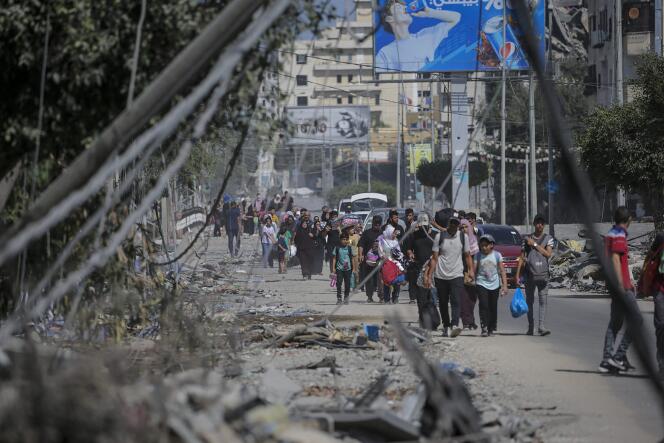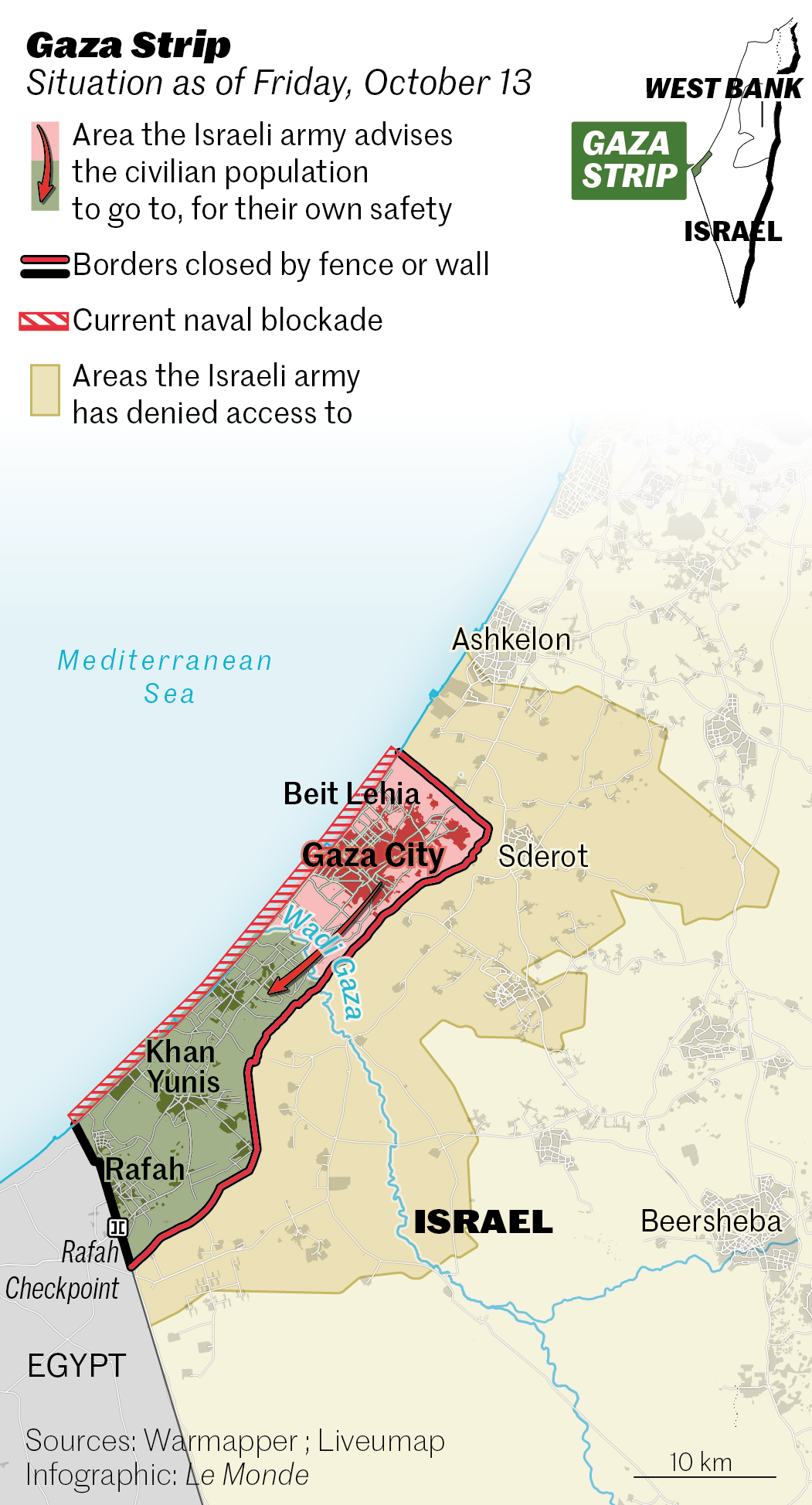


Gaza was unreachable on Friday, October 13. In the early evening, the enclave's unstable Internet connection resumed, letting desperate messages filter through. "We're evacuating. People are dying! I don't know where to go," a mother sent hastily, asking someone to notify her husband, who was in the United States. "Tell him we love him." In chaos and panic, thousands of Gazans fled their homes in the north of the enclave after the Israeli army dropped leaflets on Friday morning asking some 1.1 million Palestinians to evacuate the area "immediately" and head south.
But where could they go? Many of these people don't have cars, and Israeli fighter jets bomb the region continuously. On Friday afternoon, bombs hit three convoys heading down the Salah al-Din road, the only major route linking the north and south of the enclave. At least 70 people were killed and 200 were injured, according to the enclave's interior ministry. Most of the victims were women and children who had boarded a truck. In one video, a paramedic arriving at a hospital collapsed to his knees. "Tell the people to go home, they're bombing those who leave," he burst out crying.
Palestinians are unable to leave the 360 km2 thin strip of land wedged between Israel, the Mediterranean and Egypt. The Gaza Strip is under siege, and nothing can enter or leave the enclave. The crossing to the Sinai Peninsula is closed. Civilians have mostly headed for the center and south of the enclave, staying with relatives and acquaintances or at the hospitals and schools of the UNRWA, the UN agency in charge of Palestinian refugees, where hundreds of thousands of displaced persons have been pouring in since the start of the war.

"It's absurd to ask over a million people to move during the bombardments," said Tamara Alrifai, a spokesperson for the agency, which does not have enough resources to cope with such a massive influx into its schools in Gaza, which has already been under Israeli blockade for over 16 years. The Norwegian Refugee Council, for its part, denounced a "war crime."
Since the surprise Hamas attack on Israel on Saturday, October 7, the Israeli military said that more than 1,300 people had been killed, the vast majority of them civilians. Meanwhile, the Gaza Strip, governed by the Palestinian Islamist Resistance Movement (Hamas) since 2007, has been under continuous bombardment. Densely populated neighborhoods, homes, ambulances and journalists have all been hit. The local Health Ministry said in a provisional death toll that 1,900 civilians in Gaza, including over 600 children, were killed in less than a week.
You have 64.56% of this article left to read. The rest is for subscribers only.
